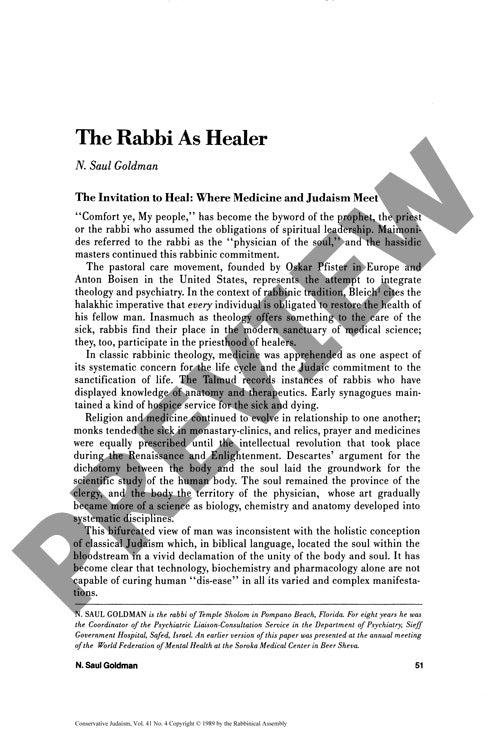The Rabbi as Healer
Couldn't load pickup availability
Throughout history, rabbis have served as healers, bridging physical medicine and spiritual care in ways that challenge modern healthcare's mind-body divide. Drawing from rabbinic tradition, theological literature, and clinical observations, this research reveals how rabbinical healing practices complement contemporary medical approaches. Analysis of classical Jewish texts, particularly Talmudic sources and Maimonidean writings, combined with pastoral care theory and hospital-based case studies, demonstrates that traditional Jewish thought maintained a holistic understanding of illness - one that integrated physical, spiritual, and psychological dimensions. Unlike the Cartesian dualism that historically separated medicine from theology, rabbinical healing employs distinct therapeutic tools including presence, ritual, prayer, and confession to address existential dimensions of illness that purely medical interventions cannot resolve. The rabbi's primary function emerges as responding to patients' experiences of "meaningless being" through restoration of spiritual identity and community connection. Clinical observations indicate that rabbinical intervention can significantly impact patient outcomes by addressing guilt, anxiety, and isolation accompanying physical illness. The research concludes that effective healing requires collaboration between medical and religious practitioners, with each profession contributing complementary expertise to comprehensive patient care. Rabbis serve as essential partners in the healing process, not merely as auxiliary support, but as professionals addressing fundamental human needs for meaning, transcendence, and spiritual wholeness during times of physical vulnerability and existential crisis.

More Information
-
Physical Description
-
Publication Information
Published 1989
ISBN
-
Publication Credits
N. Goldman

